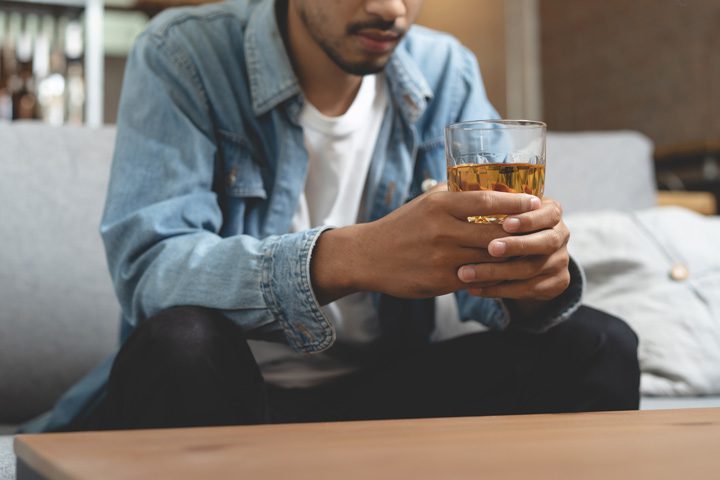Alcohol Consumption & COVID-19: Why Now Is the Time to Get Help
It’s been quite a year. Locked away from family and friends, you’ve spent your time watching the news and reading social media, unable to hug your best friend or get a break from the kids who are home 24/7. The pandemic changed many people. For a number of people, it led to increases in alcohol consumption and addiction.
You’re Not Alone – Alcohol Consumption Grew
The pandemic created the perfect storm of high stress and isolation to fuel addiction in many people. Most didn’t start out using alcohol excessively, although some may have already been well on their way to addiction.
The National Institute on Alcohol Abuse and Alcoholism and RAND Corporation published a study that showed that the rate of heavy drinking, particularly in women, grew by as much as 41%. The overall frequency of alcohol consumption grew across all U.S. adults over 30 by about 14%. Heavy drinking, also called binge drinking, occurs when a person consumes four or more alcoholic drinks within two hours.
Did the Pandemic Impact Your Drinking Habits?
It’s not always easy to see what’s occurred in your life until you take a step back and ask a few key questions.
- Think back to 2019. Did you drink as much at a social event as you are now drinking at home?
- Now that you are getting back to social activities, do you still drink alone at home?
- Is it possible to have just one drink and not any more than that? Do you feel compelled to consume more and struggle to control it?
- Are you drinking more than 4 drinks over the span of 2 hours on any occasion, even if it is not all of the time?
- Do you drink every day?
Recognizing an increase in alcohol consumption is the first step in getting help. Don’t overlook small increases, either. Let’s face it – most people faced intense fear and stress during most of 2020 as the pandemic wore on. What did that stress do to you and your health?
How to Know You Need Alcohol Addiction Treatment
Alcohol addiction occurs when a person feels a compulsion to drink even though they also know doing so poses a significant risk to their health and well-being. You may struggle to stop after one drink. You may try to rationalize the increase due to the stress, the kids being at home, or your inability to spend time with friends. Are you waiting up thinking about having a drink? Do you dread going through a day when you cannot drink?
In addition to this, look for signs of dependence. This occurs when the body and brain become used to the presence of the substance. As a result, the body starts to rely on alcohol to function normally. When you can’t drink, you may feel ill, struggle to sleep, or feel anxious. This is your body’s way of trying to make you get a drink.
In these situations, it’s time to seek out help for alcohol consumption. Even if you’re not at that point just yet, getting help now could help you avoid the onset of serious alcohol addiction.
It’s a Drink – How Is That a Bad Thing?
Alcohol is readily available, used in many social situations, and often brushed off as a necessity after a long day at work. How does this seem like a bad thing? Heavy alcohol consumption, as well as dependence and addiction, puts a person at a high risk for health risks including:
- Greater likelihood of engaging in reckless behavior like drinking and driving, unprotected sex, or violence
- Increased cancer risk, including esophageal cancer and, in women, breast cancer
- Liver and kidney damage, which may be permanent and life-threatening
- Overdose due to high toxicity – that’s even more likely because alcohol tolerance develops quickly, pushing a person to drink more each time
- Mental health disorders, including depression and anxiety
- Stroke and heart disease
The list goes on. If you’ve noticed an increase in your alcohol consumption during the pandemic, now is the time to reach out for help. Treatment, whether with alcohol detox or outpatient care, can help you to regain control and avoid many of these consequences.
If your loved one is struggling with addiction, it’s time to reach out for help for them as well. An intervention could be one way to help if they simply will not get the help they need on their own.
The longer you go without treatment for alcohol addiction, the more difficult it may be. Get help even if you think you can stop on your own. Our team is ready to support your efforts.
Share This Post:








